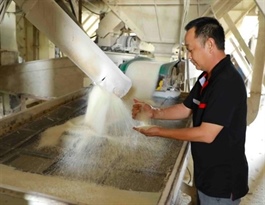Vietnam hits nearly 135,000 car sales in first half of 2024
Vietnam hits nearly 135,000 car sales in first half of 2024
Vietnam's car market recorded sales of 134,884 vehicles in the first half of 2024, down 2 per cent on-year, according to a report from the Vietnam Automobile Manufacturers’ Association.

Specifically, sales of passenger cars contracted by 3 per cent on-year to 97,295 units. Sales of commercial vehicles jumped by 2 per cent year-on-year to 36,441 units. Meanwhile, special-purpose vehicles experienced a on-year decline of 4 per cent to 1,148 units.
In the first half of the year, completely knocked-down sales were down 15 per cent (67,849 united) while complete built-up were up 16 per cent (67,035 units) compared with last year’s period.
In June, a total of 26,575 vehicles were sold out, including 19,944 passenger cars, 6,419 commercial vehicles and 212 special-purpose vehicles. The June volume is up 3 per cent from May and up 12 per cent from June 2023. While sales of passenger cars were up 9 per cent from the previous month, commercial vehicles and special-purpose vehicles down 12 per cent and 21 per cent in June, respectively.
Despite improvements compared to the first months of 2024, Vietnam’s auto sales are still quite slow. Many new car brands have entered the market in the first half of the year. However, customers still have many reasons to delay their purchases. In particular, the market is waiting for the 50 per cent registration fee reduction policy for domestically manufactured and assembled cars.
The Ministry of Finance (MoF) has submitted a report to the government, proposing scrapping the reduction of registration fees for domestically manufactured and assembled cars in 2024. Over past years, this scheme has lowered state budget revenue. If the scheme continues into this year, the state budget will see a decrease of $205 million in revenues.
However, the policy leads to increased sales of domestically manufactured and assembled cars, thereby increasing revenue from VAT and special consumption tax, according to the MoF.




























